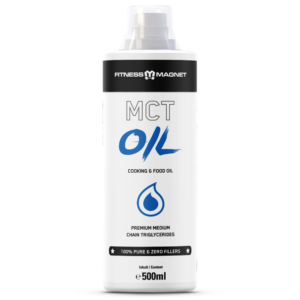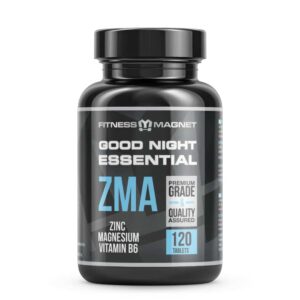Seit vielen Jahren bereits hat die Fitness-Community ein sehr gespaltenes Verhältnis zum Thema Gluten. Während eine glutenfreie Lebensweise von vielen Menschen als der Schlüssel zu einem gesünderen Leben angesehen und beinahe religiös beweihräuchert wird, sieht ein anderer Teil diese Ernährungsweise durchaus kritisch. Andere Menschen wiederum haben einen guten Grund, auf Gluten zu verzichten, der sich nicht allein darauf beschränkt einer Fitnessmode zu folgen. Der Verzicht auf den Stoff trägt nämlich auch dazu bei, die Symptome einer Krankheit namens Zöliakie einzudämmen, die unter anderem den Dünndarm schädigen kann. Eine letzte Gruppe wiederum geht mit ihrer Kritik so weit und sagt, dass die ganze Hysterie um das Gluten lediglich dazu dient, neue Nahrungs- und Nahrungsergänzungsmittel an den Mann und die Frau zu bringen. Was aber stimmt nun? Wir gehen den Mythen und Fakten auf die Spur.
Was hat es mit Gluten auf sich?
Gluten ist, anders als es viele Menschen vermuten, kein künstlich hergestelltes Gift, das Nahrungsmitteln aus reiner Böswilligkeit zugefügt wird. Genau genommen handelt es sich nämlich um ein spezielles Protein, das völlig natürlich ist und in Weizen, Gerste und Roggen zu finden ist. In der Nahrungsmittelindustrie wird dieses Eiweiß schließlich dazu genutzt, um Lebensmitteln wie Brot, Pasta oder Crackern Flexibilität, Form und eine ansprechende Textur zu verleihen. Zudem spielt die in Gluten enthaltene Proteinstruktur Gliadin eine entscheidende Rolle für die Herstellung von Backwaren, da diese somit beim Backen besonders gut aufgehen. Darüber hinaus kann das Klebeeiweiß auch in diversen anderen Lebensmitteln zumindest in Spuren vorhanden sein. Das Spektrum der Lebensmittel, die möglicherweise Gluten beinhalten, reicht dabei von Hühnerbrühe über Bier bis hin zu Süßigkeiten. Viele Menschen greifen ganz bewusst zu glutenfreien Lebensmitteln, da sie glauben, dass diese Lebensmittel sie gesünder machen und vor Verdauungsproblemen schützen, ganz gleich, ob diese nun direkt durch Gluten verursacht werden oder nicht. Allerdings hat diese Ernährungsweise auch eine Kehrseite, denn wer das Gluten komplett aus seiner Ernährung streicht, kann Probleme mit der Aufsnahme von Eisen, Ballaststoffen und B-Vitaminen bekommen. Studien belegen zudem, dass der Konsum von Vollkornprodukten, die natürliches Gluten enthalten, das Risiko für die Entstehung von Diabetes Typ 2 und von Herz-Kreislauf-Erkrankungen senken kann. Es ist also durchaus möglich, dass eine normale Menge des Stoffs deinem Körper nicht schadet, sondern ganz im Gegenteil sogar gesund ist.
Zöliakie vs. Glutenempfindlichkeit
Wenn du auf dem Label eines Produktes oder auf der Speisekarte deines Lieblingsrestaurants den Zusatz »glutenfrei« liest, kommst du um den Eindruck nicht herum, anzunehmen, dass es unzählige Menschen geben muss, die dieses Protein nicht vertragen. Horden von Menschen, die an Zöliakie leiden und unbedingt vor dem gesundheitsschädlichen Potenzial des Glutens gewarnt werden müssten. Es ist natürlich wahr, dass Menschen, die an Zöliakie leiden, sehr vorsichtig damit sein müssen, wie viel Gluten sie konsumieren. Allerdings betrifft diese Erkrankung lediglich 0,3-1,2 Prozent der Gesamtbevölkerung. Zöliakie kann auch nicht einfach selbst festgestellt werden, sondern muss von einem Arzt durch Testverfahren wie Biopsien und Bluttest wasserdicht diagnostiziert werden. Wenn du eine solche Diagnose bekommen hast, ist es sehr sinnvoll auf das Klebeeiweiß zu verzichten, wo du nur kannst. Alle anderen haben, wenn überhaupt, lediglich eine mehr oder minder stark ausgeprägte Empfindlichkeit gegenüber dem Klebeeiweiß. Diese Empfindlichkeit wird auch Glutenintoleranz genannt und ist ganz klar von der Zöliakie abzugrenzen. Aber auch hier ist die Anzahl der Menschen, die tatsächlich unter einer solchen Empfindlichkeit leiden, sehr gering. Wenn die Glutenproblematik aus wissenschaftlicher Sicht aber nur so wenige Menschen überhaupt betrifft, warum wird in der Fitness-Welt dann überhaupt so ein Hype veranstaltet? Steht das Weizenprotein etwa der Leistungsfähigkeit oder den körperlichen Entwicklungsmöglichkeiten im Weg?
Baustelle Fettabbau
In der Fitness-Community werden glutenfreie Nahrungsmittel mit dem Abbau von Körperfett in Verbindung gebracht. Warum ist allerdings fraglich, denn bis dato konnte keine wissenschaftliche Studie einen direkten Zusammenhang zwischen dem Verzicht auf das Eiweiß und dem Abbau von Körperfett bestätigen. Ein etwaiger Fettverlust war in allen Untersuchungen ausschließlich auf die Reduktion der zugeführten Kalorienmenge zurückzuführen. Ein möglicher Grund, der die subjektive Empfindung des höheren Fettverlusts erklärt, ist der häufige Umstieg von einer auf industriell verarbeiteten Lebensmitteln basierenden Ernährung hin zu einer deutlich natürlicheren Ernährung, die deutlich weniger Kalorien liefert und aus viel Obst und Gemüse besteht. Unter dem Strich führt also der bloße Verzicht auf das Klebeeiweiß für sich genommen zu keinem Fettverlust. Dazu braucht es wie bei jeder anderen Diätform auch ein Kaloriendefizit.
Problembereich Leistungsfähigkeit
Viele Athleten glauben, dass eine glutenfreie Ernährung die Leistungsfähigkeit beim Training deutlich steigert. Diese These trifft für Personen, die unter Zöliakie oder einer diagnostizierten Glutenempfindlichkeit leiden definitiv zu. Wie wir bereits erwähnt haben, treffen diese Diagnosen aber nur auf einen Bruchteil der Bevölkerung zu, sodass ein Großteil der Sportler einer rein subjektiven Wahrnehmung aufsitzt, die wissenschaftlich nicht bestätigt werden kann. Oftmals wird eine Glutenempfindlichkeit von Ausdauersportlern nämlich auch mit normalen Verdauungsproblemen verwechselt, die die Ausdauerbelastung selbst oder eine auf Vollkorn basierende Ernährung verursachen kann. Eine im Jahr 2012 in der Wissenschaftszeitschrift »Clinical Reviews in Allergy & Immunoloy« veröffentlichte Studie konnte bestätigen, dass der komplette Verzicht auf glutenhaltige Lebensmittel bei gesunden Sportlern ohne eine entsprechende Empfindlichkeit zu keiner Leistungsverbesserung führt.
Wie kann ich eine Glutenempfindlichkeit selbst erkennen?
Wenn du aufgrund verschiedener Symptome, wie zum Beispiel Verdauungsproblemen, davon ausgehst, eine Glutenempfindlichkeit zu haben, solltest du diese These zunächst mit einer Eliminationsdiät überprüfen. Während dieses experimentellen Prozesses musst du beobachten, wie dein Körper darauf reagiert, wenn du glutenreiche Lebensmittel nach und nach aus deiner Ernährung verbannst. Solltest du eine nachhaltige Besserung deiner Beschwerden beziehungsweise eine Verbesserung der Verdauungstätigkeit feststellen, ist das ein erstes Anzeichen für eine Glutenempfindlichkeit. Sollte nach diesem Experiment noch immer Unsicherheit bestehen, kannst du dich bei deinem Arzt auch auf Zöliakie testen lassen. Denke aber immer daran, dass die Anzahl der Menschen, die unter einer Glutenempfindlichkeit oder gar einer Zöliakie leiden, sehr gering ist. Es ist daher viel wahrscheinlicher, dass deine Beschwerden durch andere Lebensmittel wie Milchprodukte, sprich Laktose, diverse Öle oder Gewürze hervorgerufen werden. Wenn du also im Rahmen deiner Eliminationsdiät das Klebeeiweiß als Übeltäter ausschließen kannst, nimmst du dich der nächsten Gruppe an Nahrungsmitteln an, bis du den Verursacher gefunden hast.
Fazit
Unter dem Strich bleibt es natürlich deine Entscheidung, ob du das Klebeeiweiß von deinem Speisezettel verbannen möchtest oder nicht. Wir sind schließlich nicht die Ernährungspolizei. Vom Standpunkt eines völlig gesunden Menschen aus macht es allerdings keinen Sinn, unbedingt auf eine glutenfreie Ernährung zu setzen, zumal sich keine Vorteile in puncto Fettabbau, Leistungsfähigkeit oder Verdauungstätigkeit ergeben. Solltest du allerdings unter einer diagnostizierten Zöliakie leiden oder eine Glutenunverträglichkeit haben, ist es natürlich wichtig, dass du die Glutenaufnahme so weit es geht, minimierst.

